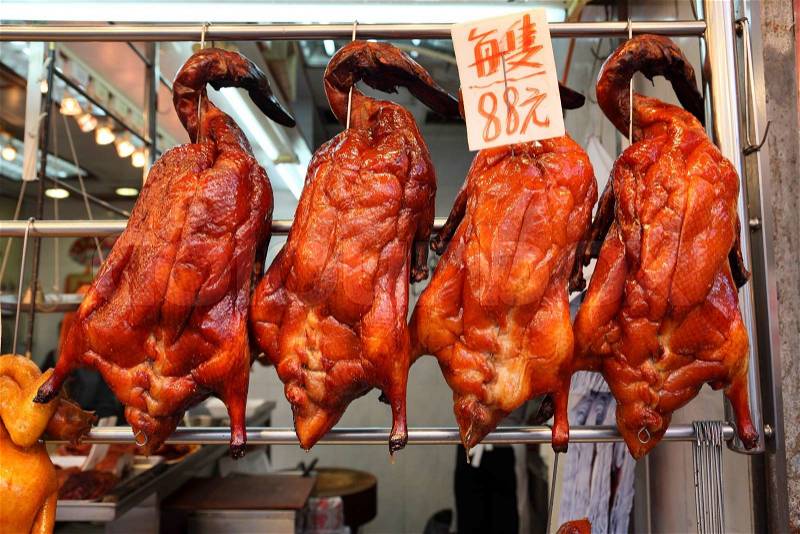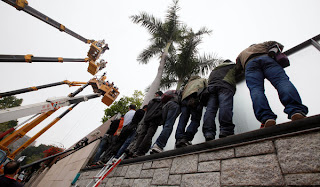As Hurricane Sandy - or as I prefer to call it, the Al Franken-storm descends on New York, you may have missed another kind of natural disaster is taking place in Asia.
No, I'm not talking about Typhoon Son Tinh - which incidentally must be totally pissed off that it has been so comprehensively upstaged - I'm talking about a drought. A drought which is causing untold suffering amongst little expatriate children all over this small green land. I'm referring to the Great Hong Kong Vegemite Drought of 2012.
The disaster seems to have first come to light on 21 October, when "Newbie_hk" on the geobaby.com forums noted that there was no Vegemite to be had at three supermarkets near her (I am going to assume Newbie_hk is female - let's be honest, not too many blokes post on geobaby.com's "Hong Kong Baby and Pregnancy Forum").
This created a mild panic amongst other posters who raced to their local stores to check for Vegemite. Well, all except for that one poster - there's always one - who didn't read the first post properly and helpfully responded by noting that Vegemite is available at most major supermarkets in Hong Kong. Well yes it normally is but right now it isn't that would be the whole point of the original post.
There was a sighting in Fortress Hill on the 22nd, but it appears that source was quickly depleted as Newbie_hk remained bereft of Vegemite by the 24th. She has not been heard from since then - hopefully she has not given up on life in the absence of yeast extract.
I also notice that there have been a few plaintive pleas on the Kraft Foods Australia Facebook page. I do not expect this to lead to anything - after the whole iSnack 2.0 debacle, Kraft has presumably resolved never to listen to its consumers again because they are morons with bad ideas.
I myself checked four supermarkets in a futile attempt to score a hit of the good stuff. Not only did I fail to find a single jar or tube of Vegemite, but several of the supermarkets had with misguided good intentions, filled the space on the shelf with jars of Marmite.
Now I am sure that as a black, salty paste that spreads on toast, Marmite would appear to a Hong Kong supermarket manager to be an acceptable substitute to Vegemite. Clearly, it is not. I am not sure why it is not - I frankly have very little idea what is in either product - it's just that Marmite is English and strange and belongs in that class of strange British food that we recoil at, along with Bovril, haggis and kippers. Vegemite, on the other hand, is Australian and strange and belongs in that class of strange Aussie food that is awesome, along with pie floaters, Tim Tams and Moreton Bay bugs.
That said, our helper went ahead and bought some Marmite anyway and we are currently serving it up to our unsuspecting boys on toast in the mornings. We will tell them when they are older.
Unfortunately, Kraft has form in this kind of supply chain blockage - any expat will tell you about the legendary Great Vegemite Drought of 2008, which lasted more than three months and rated a mention in both The Age and the South China Morning Post. Fortunately, my parents are visiting next week and will bring some Vegemite with them, hopefully enough to see us through until this accursed drought breaks and the Australian community can go back to having vegemite toast for breakfast once more.
No, I'm not talking about Typhoon Son Tinh - which incidentally must be totally pissed off that it has been so comprehensively upstaged - I'm talking about a drought. A drought which is causing untold suffering amongst little expatriate children all over this small green land. I'm referring to the Great Hong Kong Vegemite Drought of 2012.
 |
| A jar of Vegemite, not in Hong Kong yesterday |
This created a mild panic amongst other posters who raced to their local stores to check for Vegemite. Well, all except for that one poster - there's always one - who didn't read the first post properly and helpfully responded by noting that Vegemite is available at most major supermarkets in Hong Kong. Well yes it normally is but right now it isn't that would be the whole point of the original post.
There was a sighting in Fortress Hill on the 22nd, but it appears that source was quickly depleted as Newbie_hk remained bereft of Vegemite by the 24th. She has not been heard from since then - hopefully she has not given up on life in the absence of yeast extract.
I also notice that there have been a few plaintive pleas on the Kraft Foods Australia Facebook page. I do not expect this to lead to anything - after the whole iSnack 2.0 debacle, Kraft has presumably resolved never to listen to its consumers again because they are morons with bad ideas.
I myself checked four supermarkets in a futile attempt to score a hit of the good stuff. Not only did I fail to find a single jar or tube of Vegemite, but several of the supermarkets had with misguided good intentions, filled the space on the shelf with jars of Marmite.
Now I am sure that as a black, salty paste that spreads on toast, Marmite would appear to a Hong Kong supermarket manager to be an acceptable substitute to Vegemite. Clearly, it is not. I am not sure why it is not - I frankly have very little idea what is in either product - it's just that Marmite is English and strange and belongs in that class of strange British food that we recoil at, along with Bovril, haggis and kippers. Vegemite, on the other hand, is Australian and strange and belongs in that class of strange Aussie food that is awesome, along with pie floaters, Tim Tams and Moreton Bay bugs.
That said, our helper went ahead and bought some Marmite anyway and we are currently serving it up to our unsuspecting boys on toast in the mornings. We will tell them when they are older.
Unfortunately, Kraft has form in this kind of supply chain blockage - any expat will tell you about the legendary Great Vegemite Drought of 2008, which lasted more than three months and rated a mention in both The Age and the South China Morning Post. Fortunately, my parents are visiting next week and will bring some Vegemite with them, hopefully enough to see us through until this accursed drought breaks and the Australian community can go back to having vegemite toast for breakfast once more.
















